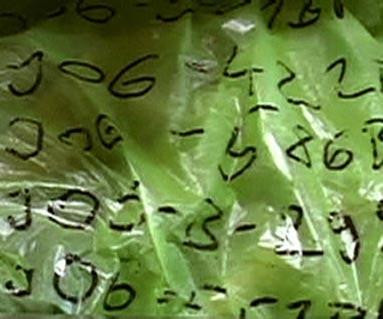resolution 827 – dialogues
Apr 23, 2015
Artists, theorists, and curators discuss artistic ways of dealing with the traumatic histories of the former Yugoslavia.
- Price
- Entrance fee to the museum + € 2.50 cover charge
- Location
- Teijin auditorium, Stedelijk Museum Amsterdam
- Time
- Apr 23, 2015, 5 pm until 7.30 pm
- Main language
- English
- Admission
- tickets
The Stedelijk Museum is proud to present Resolution 827 – Dialogues in close cooperation with the Museum of Contemporary Art, Belgrade, and in the framework of Global Collaborations. This panel discussion brings together artists, theorists, and curators to reflect upon artistic ways to deal with traumatic histories and their correlating visual imagery. What role could art play in resolving a traumatic conflict such as the one that led to the dissolution of Yugoslavia? From what position can artists speak about the (im)possibilities of finding such resolution? The panel discussion is an extension of the exhibition “Resolution 827” in Stedelijk Museum Bureau Amsterdam. It aims to open up the debate on sore points shared by the societies of the republics of the former Yugoslavia and the Netherlands alike, such as the Srebrenica genocide that is still being investigated by the International Criminal Tribunal for the former Yugoslavia.
MORE ABOUT THE SPEAKERS
Zoran Erić (b. 1968, Novi Sad, Serbia) is an art historian, curator, and lecturer. He holds a Ph.D. from the Bauhaus-Universität Weimar. He is Chief Curator at the Museum of Contemporary Art, Belgrade. His research fields include the meeting points of urban geography, spatio-cultural discourse, and theory of radical democracy. Erić lives and works in Belgrade.
Jason File (b. 1976, Marquette, Michigan, USA) is an artist, lecturer, and war crimes prosecutor. He holds degrees in Fine Arts from the Chelsea College of Arts, London and the Royal Academy of Art, The Hague (2013). He also holds degrees in the humanities, social sciences, and law from Yale (1998), Oxford (2000), and Yale Law School (2004). He has been awarded numerous art prizes. File has exhibited in solo and group shows both in Europe and the United States. He lives and works in The Hague.
Arno van Roosmalen (b. 1959, Twello, the Netherlands) holds a degree from the University of Groningen (1989), where he studied Art History and Social Geography. He is the director of Stroom Den Haag, a center for visual arts, architecture, and urbanism in The Hague (he is the initiator of See You in The Hague). Van Roosmalen previously worked as an adviser at the Mondriaan Fund, as a program coordinator at TENT, Rotterdam, and as curator of the City Collection at Museum Boijmans van Beuningen, Rotterdam. Van Roosmalen regularly writes articles for magazines and catalogues. He lives and works in The Hague.
Dr. Damir Arsenijević (b. 1977, Tuzla, Bosnia and Herzegovina, Yugoslavia) works in the fields of critical theory and psychoanalysis. His art and theoretical interventions establish settings for the discussion of painful topics after the war and genocide in the former Yugoslavia. He was a Fulbright Visiting Scholar and Professor at the Department of Rhetoric, UC Berkeley in 2011/12. Currently, he is a Leverhulme Fellow at De Montfort University, Leicester, UK, leading the project “Love after Genocide”. He founded the Psychoanalytic Seminar Tuzla in Bosnia and Herzegovina, which opens up the public space for the exploration of the unconscious of war and genocide.
Milica Tomić (b. 1960, Belgrade, Serbia) was born in Belgrade, Yugoslavia. She is a conceptual artist. Her work centres on researching, unearthing and bringing to public debate issues related to political and economical violence, trauma and social amnesia; with particular attention to the 'short circuit' between intimacy and politics. As a response to the commitment to social change and the new forms of collectivity it engenders, Milica Tomić has made a marked shift from individual to collective artistic practice. Today, she is a founding member of the new Yugoslav art/theory group, "Grupa Spomenik" [Monument Group] (2002), and founder of the project Four Faces of Omarska (2010). Milica Tomić is a head of Institute of Contemporary Art at the TU Graz and professor of the Politics of Memory program at the Trondheim Academy of Fine Art /NTNU in Norway [2014/15]. She has participated in international exhibitions such as After Year Zero and Forensis, Kiev Biennial [2015]; HKW Berlin [2014]; Odessa, Biennial [2013]; 10th Sharjah Biennial [2011]; Manufacturing Today/Trondheim Biennale [2010]; 15th Sydney Biennale [2006]; Populism, National Museum of Art, Oslo/Stedelijk Museum, Amsterdam/Frankfurter Kunstverein [2005]; 8th Istanbul Biennial [2003]; 50th Venice Biennale [2003]; 49th Venice Biennale [2001]; 24th Sao Paulo Biennale [1998] etc.
MORE CONTEXT: SEE YOU IN THE HAGUE
See You in The Hague is a cultural program about The Hague as the International City of Peace and Justice. The program was initiated by Stroom Den Haag.
In the context of See You in The Hague, the exhibition A Crushed Image (20 Years after Srebrenica) will run from March 22 – April 12, 2015 at Stroom Den Haag. The exhibition deals with the aftermath of the atrocities that took place in Srebrenica. It shows work by Peter Koole and Jason File. The exhibition is located in The Hague, the city where the International Criminal Tribunal for the former Yugoslavia is located. For more info: www.stroom.nl

